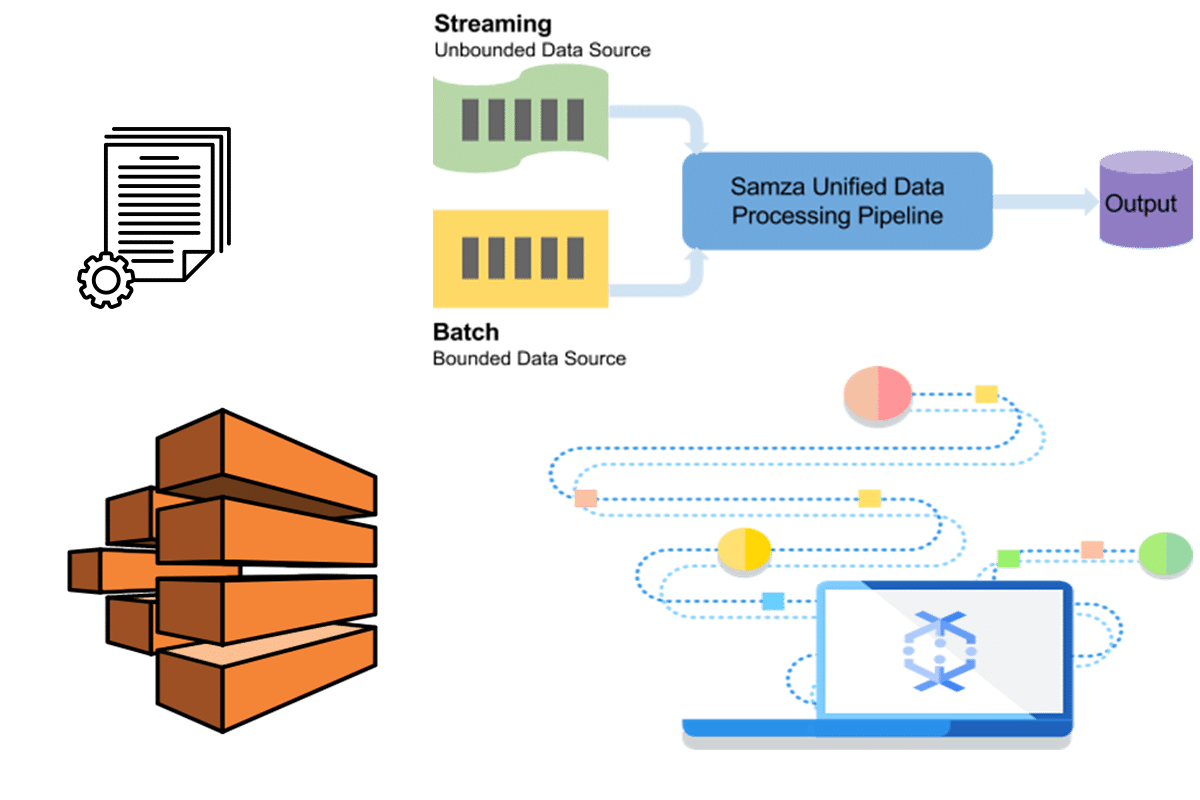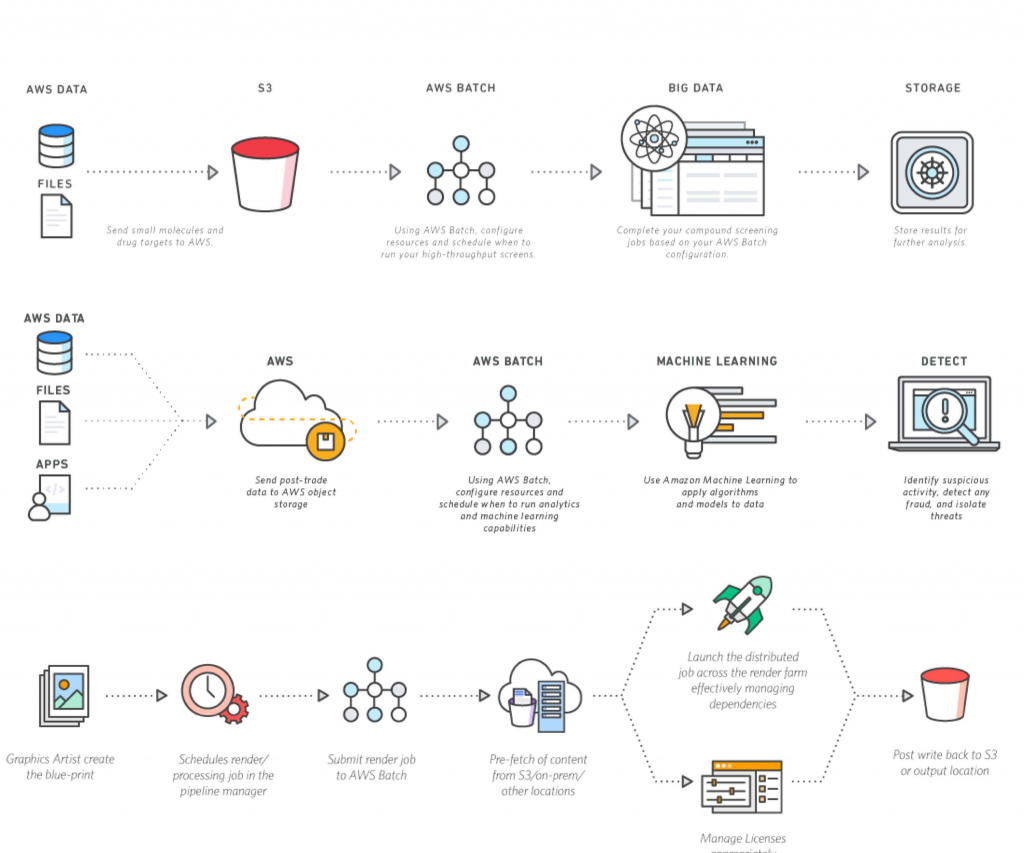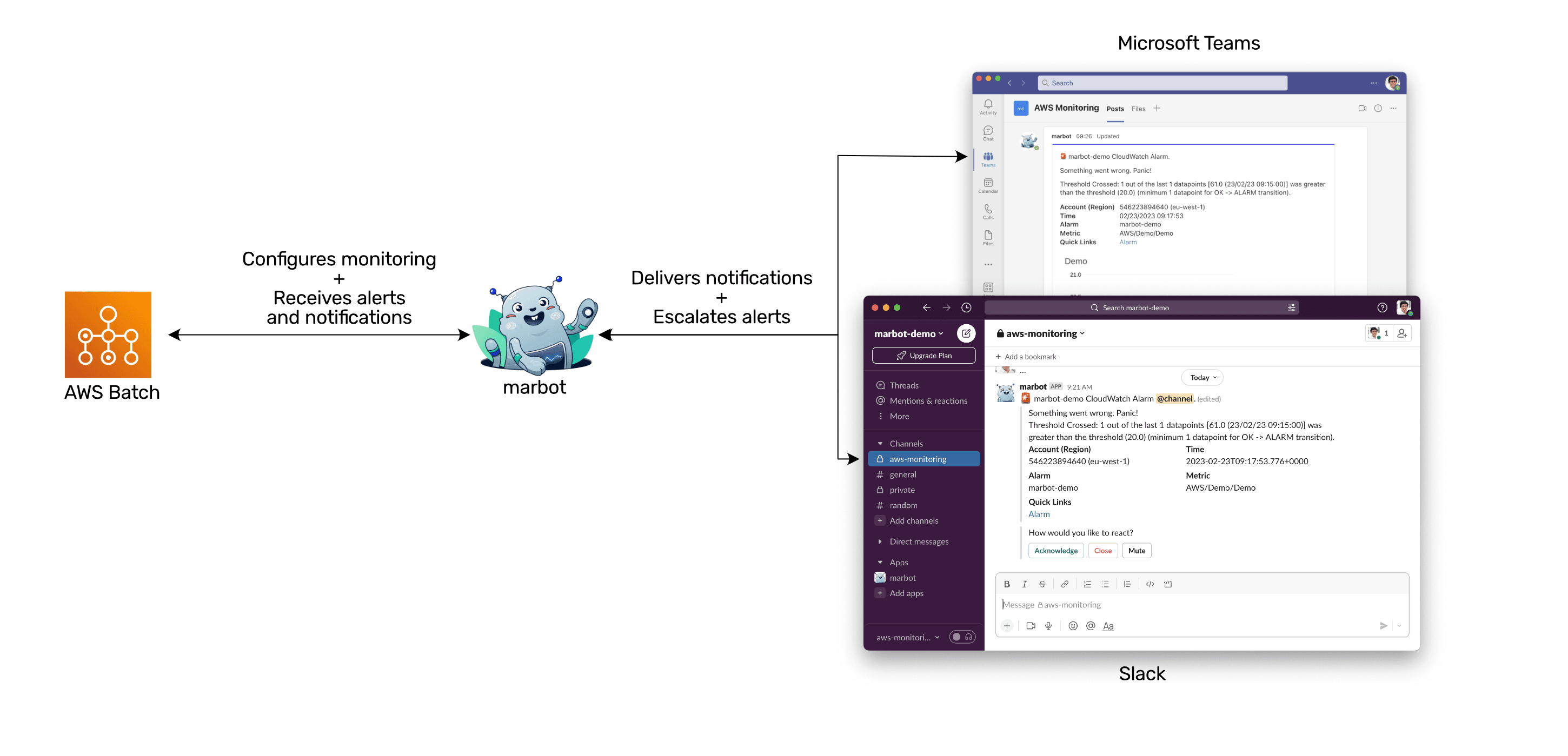Hey there tech wizards and cloud enthusiasts! If you're diving into the world of IoT and cloud computing, you've probably heard about AWS RemoteIoT batch jobs. This game-changing technology is revolutionizing how we manage large-scale IoT data processing. Whether you're a developer, engineer, or just someone curious about the latest advancements in cloud computing, this article will give you the inside scoop on how AWS RemoteIoT batch jobs can transform your operations. So, buckle up and let's dive right in!
Now, you might be wondering, "What exactly is a RemoteIoT batch job in AWS?" Well, buckle up because we're about to break it down for you. Imagine being able to process thousands of IoT device data points without breaking a sweat. AWS RemoteIoT batch jobs allow you to schedule and execute large-scale data processing tasks efficiently. It's like having a supercharged engine for your IoT data management needs.
But why should you care? Because in today's fast-paced digital world, managing IoT data efficiently can make or break your business. Whether you're optimizing supply chains, monitoring environmental conditions, or enhancing smart city infrastructure, AWS RemoteIoT batch jobs can help you stay ahead of the curve. Let's explore how this powerful tool can elevate your IoT operations to the next level.
Read also:Jonathan Stoddard Wife The Untold Story You Didnt Know About
Understanding AWS RemoteIoT Batch Jobs
Before we dive deeper, let's get our basics straight. AWS RemoteIoT batch jobs are designed to handle large-scale data processing tasks for IoT devices. These jobs are executed in batches, allowing you to process thousands of data points simultaneously. It's like having an assembly line for your IoT data, ensuring everything runs smoothly and efficiently.
Here are some key features that make AWS RemoteIoT batch jobs stand out:
- Scalability: Process as much data as you need without worrying about infrastructure limitations.
- Automation: Schedule jobs to run automatically, saving you time and effort.
- Integration: Seamlessly integrate with other AWS services for a comprehensive IoT solution.
- Cost-Effective: Pay only for the resources you use, keeping your costs under control.
So, whether you're managing a fleet of connected devices or analyzing sensor data from remote locations, AWS RemoteIoT batch jobs have got you covered.
Why Choose AWS for RemoteIoT Batch Jobs?
When it comes to cloud computing, AWS is the gold standard. With its robust infrastructure and extensive range of services, AWS offers a perfect platform for managing IoT batch jobs. Here's why AWS stands out:
Firstly, AWS provides unparalleled scalability. As your IoT operations grow, AWS can easily scale to meet your demands. Secondly, its reliability is second to none. With data centers spread across the globe, AWS ensures your data is always safe and accessible. Lastly, its cost-effectiveness makes it an attractive option for businesses of all sizes.
Setting Up Your First RemoteIoT Batch Job
Ready to get your hands dirty? Setting up your first RemoteIoT batch job in AWS is easier than you think. Follow these simple steps:
Read also:Is Kristi Mclelland Married Unveiling The Truth Behind The Relationship Status
Step 1: Create an AWS Account
If you haven't already, sign up for an AWS account. It's free to start, and you'll get access to a ton of resources to help you get started.
Step 2: Configure Your IoT Devices
Next, configure your IoT devices to send data to AWS. This involves setting up the necessary permissions and connections. AWS provides detailed documentation to guide you through this process.
Step 3: Define Your Batch Job
Now, it's time to define your batch job. Specify the data you want to process, the frequency of execution, and any other parameters. AWS provides a user-friendly interface to make this process a breeze.
Step 4: Execute and Monitor
Finally, execute your batch job and monitor its progress. AWS provides real-time insights into job performance, allowing you to make adjustments as needed.
Real-World Applications of RemoteIoT Batch Jobs
So, how are businesses using RemoteIoT batch jobs in AWS? Here are some real-world examples:
Smart Agriculture
Farmers are using RemoteIoT batch jobs to monitor soil conditions and weather patterns. By processing large amounts of sensor data, they can make informed decisions to optimize crop yields.
Supply Chain Optimization
Companies are leveraging RemoteIoT batch jobs to track the movement of goods in real-time. This helps them identify bottlenecks and improve delivery times.
Environmental Monitoring
Environmental agencies are using RemoteIoT batch jobs to analyze data from air quality sensors. This enables them to take proactive measures to protect public health.
Best Practices for RemoteIoT Batch Jobs
To get the most out of your RemoteIoT batch jobs, here are some best practices to follow:
- Regularly update your IoT devices to ensure compatibility with AWS services.
- Monitor job performance regularly to identify and resolve issues quickly.
- Optimize your batch job parameters to improve efficiency and reduce costs.
- Document your processes to make it easier for your team to manage and troubleshoot.
By following these best practices, you can ensure your RemoteIoT batch jobs run smoothly and deliver maximum value.
Common Challenges and Solutions
Like any technology, RemoteIoT batch jobs come with their own set of challenges. Here are some common issues and how to address them:
Data Security
With large amounts of sensitive data being processed, security is a top concern. AWS provides robust security features, including encryption and access controls, to protect your data.
Scalability Issues
As your IoT operations grow, you may encounter scalability issues. AWS's auto-scaling feature can help you manage these challenges by dynamically adjusting resources based on demand.
Cost Management
Managing costs can be tricky, especially when dealing with large-scale data processing. AWS provides detailed billing reports and cost management tools to help you keep costs under control.
Future Trends in RemoteIoT Batch Jobs
The future of RemoteIoT batch jobs looks promising. With advancements in AI and machine learning, we can expect even more sophisticated data processing capabilities. Additionally, the rise of edge computing will enable faster and more efficient data processing at the source.
As technology continues to evolve, staying updated with the latest trends and advancements is crucial. AWS is at the forefront of these developments, ensuring its customers have access to the latest tools and technologies.
Tools and Resources for RemoteIoT Batch Jobs
Here are some tools and resources to help you get started with RemoteIoT batch jobs in AWS:
AWS IoT Core
AWS IoT Core is a managed cloud service that allows connected devices to securely interact with cloud applications and other devices.
AWS Batch
AWS Batch enables you to run batch computing workloads of any scale efficiently. It automatically provisions the optimal quantity and type of compute resources.
AWS Lambda
AWS Lambda lets you run code without provisioning or managing servers. It's perfect for executing batch jobs triggered by specific events.
Conclusion and Call to Action
And there you have it, folks! AWS RemoteIoT batch jobs are a powerful tool for managing large-scale IoT data processing. By leveraging the scalability, automation, and integration capabilities of AWS, you can take your IoT operations to the next level.
So, what are you waiting for? Start exploring the possibilities of RemoteIoT batch jobs in AWS today. Share your thoughts and experiences in the comments below. And don't forget to check out our other articles for more insights into the world of IoT and cloud computing.
Table of Contents
- Understanding AWS RemoteIoT Batch Jobs
- Why Choose AWS for RemoteIoT Batch Jobs?
- Setting Up Your First RemoteIoT Batch Job
- Real-World Applications of RemoteIoT Batch Jobs
- Best Practices for RemoteIoT Batch Jobs
- Common Challenges and Solutions
- Future Trends in RemoteIoT Batch Jobs
- Tools and Resources for RemoteIoT Batch Jobs
- Conclusion and Call to Action



